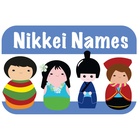For over fifteen years, I’ve been teaching Japanese and Japanese culture at university, and today most Brazilian students know that almost all Japanese names have meanings. At the beginning of each semester, I write my name, Satomi, in kanji and tell my students that 聡 means sabedoria (wisdom) and 美 means beleza (beauty). I was even accustomed to explaining the weighty expectations on me from my father.
Names become a target of piada
Brazilian people love jokes (piada), so you would see even a beautiful lady making a series of old man gag jokes or using old puns. Japanese names can also become an easy target of their jokes.
For example, I feel great sympathy for people named Kumiko, Kunio, or Kubota. Sorry to be so frank here, but “cu” means anus in Portuguese. Also, Kagami is a beautiful name in Japanese, yet in Portuguese “cagar” means to defecate, and “mi” sounds like the pronoun “me” which makes the word mean “Defecate on me.” What a misery.
As an anecdote, I would also like to mention that people used to call a Japanese ambassador by the honorific title, “kakka,” to show respect. In Spanish “caca” means feces, so ironically it evoked derisive laughter for sure. Another name which always becomes the topic of conversation at events like the Brazil Economic Mission is the name of a ward in Tokyo—Chiyoda-ku. To Brazilian people, “Chiyoda-ku” sounds like“Tio (uncle) dá (emit) cu (anus)” meaning “uncle emits his anus.” Sorry for those who dedicate their life to the future of Japan in Kasumigaseki (the heart of Japanese bureaucrats), but I would suggest that they omit “Chiyoda-ku” and simply say Kasumigaseki, Tokyo, when referring to the location of their workplace.
Immigrants work on name changes
Historically immigrants have used some ingenuity coming up with their names. For instance, my mother-in-law’s name is Masako in Japanese, but when she moved to Brazil at age six, she was advised by a clerk at the register office to write her name as Massako, so her Portuguese name has two “S”s. In Portuguese, “s” between vowels gets a dull sound, so the Brazilian officer kindly made the suggestion to avoid the risk of having the name turn into Mazako.
Immigrants themselves have also made some effort. There are many second-generation immigrants, currently over 60 years of age, who have the names such as Jorge and Mario. This is because their names can also be written in kanji as 譲二 and 真理雄. For the same reason, Marie and Maria were popular names among women.
The names “Yuko” and “Yoko” are easy to pronounce and thus have been also popular regardless of generation and nationality, yet in Latin America, the one that ends with “co” (such as “Marco”) represents a male name, so we can imagine that even having those names did not necessarily make their life easier.
By the way, all the naming efforts that were made by Japanese immigrants for the sake of their children and grandchildren is rarely seen today. These days, most people use Japanese names as their middle names or combine them with their Brazilian names as in Henrique Toshio or Leonardo Kei. When a name-caller has many options, they make their own choice of what to call their loved ones—either by their Brazilian or Japanese names—on a case-by-case basis, and they switch such name-calling based on their relationship, identity, and feelings. Some Brazilian people choose to call people by their Japanese names. We could probably write an academic paper just on this theme alone.
Japanese names in the rise of globalization
One of my former students, who is not Nikkei, has a Japanese name. Her name is Yokohama, and she got the name from her father who liked its cute sound. There is another non-Nikkei student who gave a Japanese name to his daughter. He named her Ayumi because he was a fan of Ayumi Hamasaki. They both seem to like their names, which is great.
We can see here that the Japanese language is also becoming globalized, just like its culture, and we now live in an age where giving a Japanese name is not just an option for Japanese people only. As for myself, I’ve had two such opportunities over the past nineteen years. The first one was when my eldest son was born, and the second one was when we named the multi-media lab in our Japanese department.
In both cases, I wanted to make sure that it 1) was short, 2) had a good meaning, and 3) would not become a target of piada. I named my son Leonardo Kei—a combination of the name of a popular soccer player at the time and a Japanese name. As for the lab, I turned down—or ignored—the suggestion of a Brazilian doctor, well-versed in Japan, that we should name it Basho and instead chose Minato 美南都, which is derived from the chief port and capital of Brazil, Rio de Janeiro. It’s very pleasing to know that both names are loved by their owners.
Four years ago, my son named our dog Will. It’s not a Japanese name, and to tell you the truth, neither Japanese nor Brazilian people can pronounce it correctly. We, the Japanese, call him “Wi-ru” and the Brazilian people call him “Vill.” In any case, though, our golden retriever would happily wag his tail and run to us, so we don’t have any problem with it.
* * * * *
Our Editorial Committee selected this article as one of their favorite Nikkei Names stories.
Comment from Editorial Committee member Yukikazu Nagashima:
Most people live with their names for life. In that sense, our names must have some effect on how we become who we are—they’ve got the expectation from our parents.
I read the article of Satomi Takano Kitahara from such perspective. As someone who lives in a different country and who knows next to nothing about the hardship of nikkei people in Brazil, I got drawn into it. First and foremost, I can’t help sympathizing for people whose precious names become an easy target of piada (jokes). Kumiko perhaps is written as 久美子. It’s a name that implies her parents’ hope that their daughter will forever stay beautiful. Who could ever imagine that such hope can turn into a target of jokes about anus? As Satomi says, it’s nothing but a misery.
As for the fact that immigrants give both Japanese and Brazilian names to their children, I was deeply touched by her description: (When a name-caller has many options,) they make their own choice of what to call their loved ones—either by their Brazilian or Japanese names—on a case-by-case basis, and they switch such name-calling based on their relationship, identity, and feelings. What kind of name-calling takes place in what kind of relationship? What do people call each other in what kind of emotional state? I agree with her statement that we could write an academic paper on linguistics based on this theme alone.
Nikkei people in America also call each other by both their Japanese and American names. In what kind of situation do they call Japanese names and vice versa? They must also be affected by the emotional state, and I can easily imagine that such emotional state is established by historical and/or social factors. For the nikkei people in America, there is a history of wartime concentration camps. Calling one’s child by his American name might encourage him to develop his American identity. On the other hand, if parents keep calling their child by his Japanese name, he might become more conscious about his identity as someone rooted in Japanese culture.
I should also mention that such name-calling is affected by generations and ages. In America, most sansei or yonsei (third or fourth generation immigrants) have American names only. It’s interesting to think about the reason behind it. If they don’t have Japanese names, why didn’t their parents give them one?
Thinking about names gives us different points of view. We could probably write multiple papers, not just one.
© 2014 Satomi Kitahara





